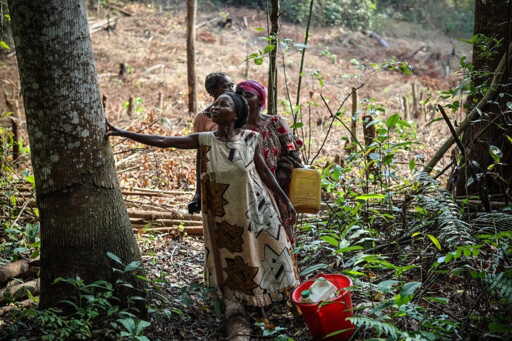Nonette Royo is a lawyer from the Philippines and executive director of The Tenure Facility, a group of “barefoot lawyers” working to secure land tenure for Indigenous, local and Afro-descendant communities across the world. To date, the organization has secured more than $150 million in funding and has made progress in securing land rights covering 34 million hectares (84 million acres) across 35 projects, an area larger than Greece. Royo joins Mongabay’s podcast to discuss the organization’s success, its recognition as a finalist for the 2025 Earthshot Prize, and why land rights are so crucial both for cultural survival and slowing the pace of global ecological degradation. “This work is really about land tenure, and about land and people. And it is very important because at this point in our world, where we are breaching planetary boundaries, we are still hesitating to invest in the people who protect our land, our forests and our diverse systems,” she says. Royo spoke with Mongabay from the United Nations climate summit, COP30, in Belém, Brazil. Despite being called the “Indigenous COP” by some due to the historically high number of Indigenous delegates, many of these attendees were seen protesting outside the debate halls, even as Brazil announced recognition of 10 new Indigenous territories to protect their cultures and environments. Advocates and experts reiterate the need to get funding into the hands of Indigenous communities, and Royo also puts her support behind the Intergovernmental Land Tenure Commitment (ILTC) pledge to recognize 160 million hectares…This article was originally published on Mongabay
From Conservation news via this RSS feed


